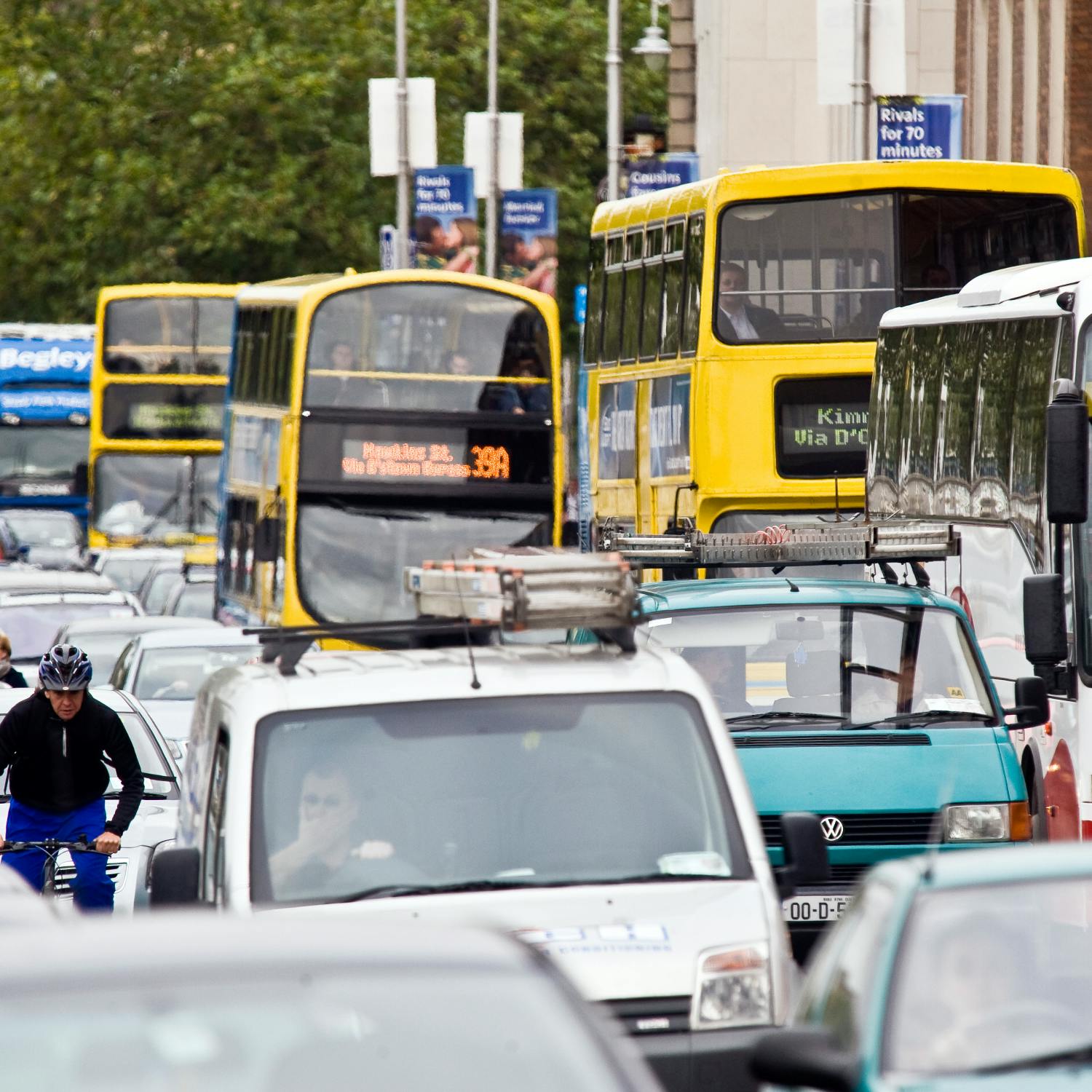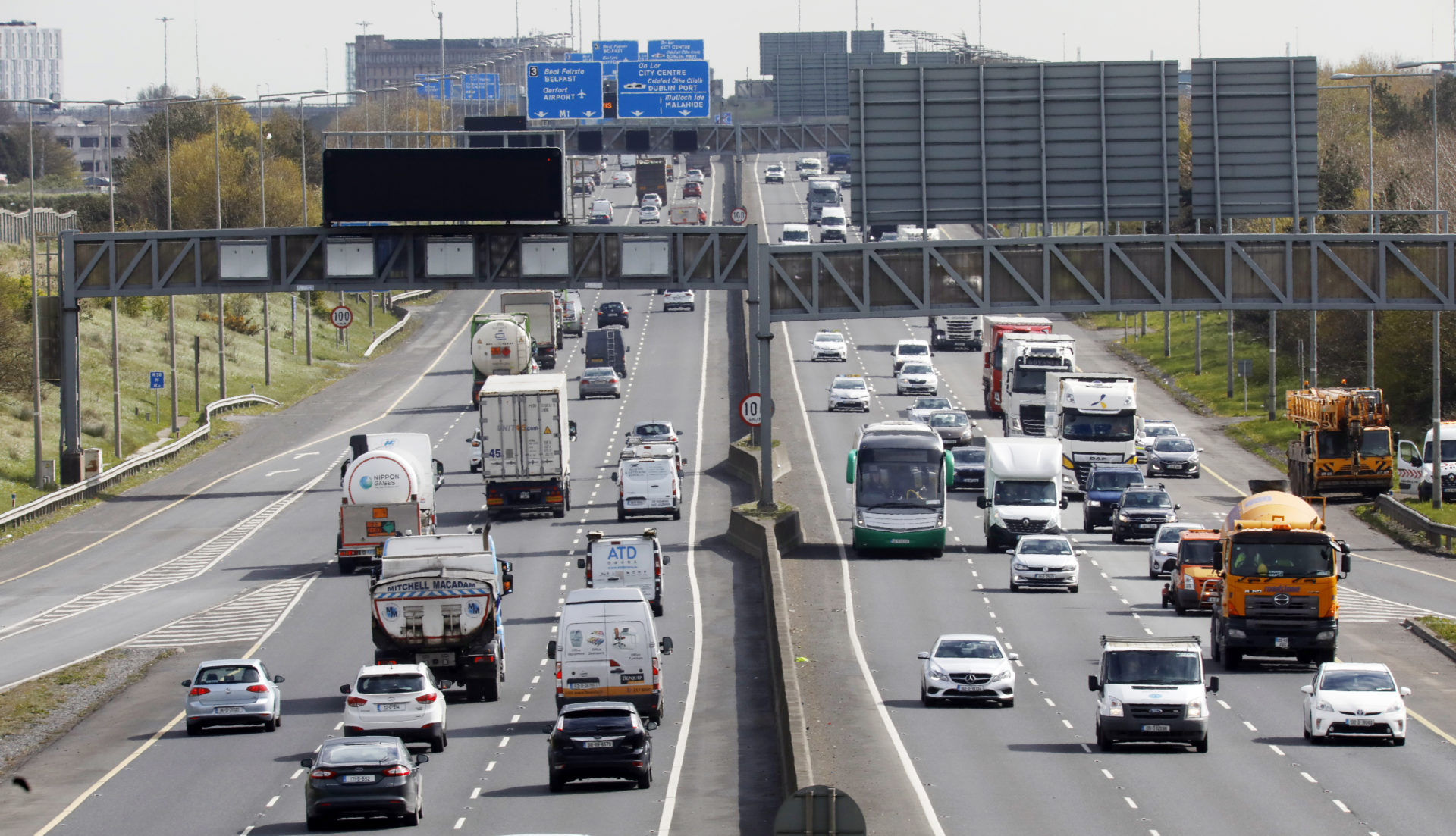Planning permission for the long-awaited Metrolink was given the go-ahead, but it may be another decade before any benefits are seen.
Professor in the School of Engineering at Trinity College Dublin Brian Caulfield said that construction likely won’t even get under way for another few years.
"It’s likely going to take maybe six, seven years of construction and another couple of years at least of wrangling on whether we should do it and a final cost-benefit analysis," he told Newstalk Breakfast.
“Why are things taking so long? Metrolink took three years in An Bord Pleanála to get out the other side.
“I do think we need to expedite these projects because our population is only getting bigger.
“We’ve never needed these types of projects more.”
 Congestion in Dublin City Centre.
Congestion in Dublin City Centre.Prof Caulfield said that comparatively, roads take a lot less time both because they are easier to build, and also because they are more politically appealing.
“A strip of motorway with a similar length, because you’re not tunnelling and all those other kinds of things, would be considerably less amount of time,” he said.
“But I think if you take the engineering out of it, it’s the politics – it's much easier for a minister or a politician to approve a road.
“Because people like roads and they’re much less expensive.
“We saw that in 2010, we delivered over 270 kilometres of motorway across this country.”
 Traffic on the M50 motorway, 12-04-2021. Image: Leon Farrell/RollingNews
Traffic on the M50 motorway, 12-04-2021. Image: Leon Farrell/RollingNewsHowever, Prof Caulfield said that he would prefer to see public transport valued above car-focused infrastructure.
"We would want it to be the other way around for congestion and climate and all those other kind of things,” he said.
“Last year, 71.3% of all trips in this country were driven, but I would say that maybe the Irish people haven’t had the alternative.
“It’s the types of alternatives we see in other cities when we go outside of the country.
“I think once that’s provided – and we saw that with Luas, Dart – if that’s provided in Cork, Limerick, Galway, Dublin, then I think it will change.”
'Pipeline of works'
Moving forward, Prof Caulfield said that there should be a “pipeline of works” that can follow on immediately from the Metrolink project.
“Metrolink, when that starts, there’s going to be a huge amount of skilled workers working on that,” he said.
“About 8,000 people will be needed to deliver that project.
“There’s no point in letting that finish, cutting a ribbon and standing back and going, ‘Aren’t we great?’
“We need to have those workers moving on to the next project; we need light rail in Cork, we need a Luas to Lucan and whatever the next project is.”
According to Prof Caulfield, the reason “why we’re in the current situation” in regard to infrastructure, is because politicians often think in election cycles rather than broad strokes.
Main image: Metrolink









